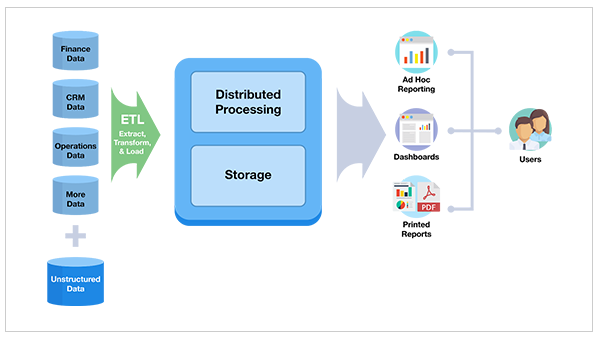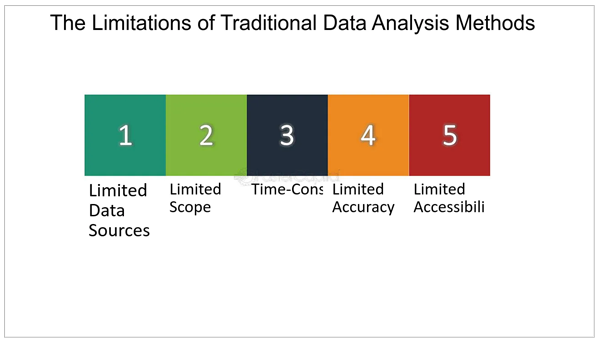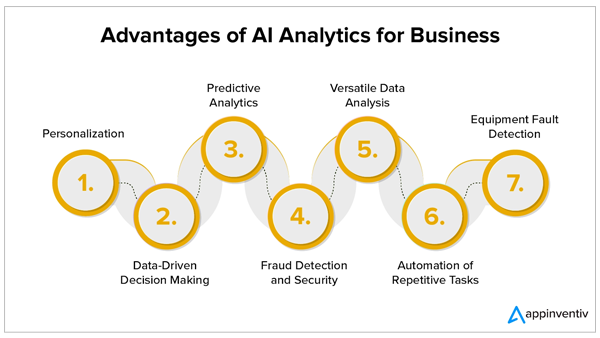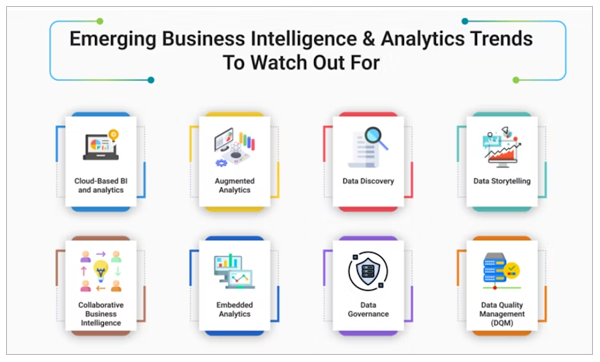
“The goal is to turn data into information, and information into insight”
In this ever-evolving digital landscape, data has been emerging as a fuel for powering industries and driving innovation. However, raw data is nothing without the right tools and insights.
And, this is right where AI comes into play to revolutionize the way we harness the power of AI. In fact, a whopping 83% of the companies believe that using AI in their business strategy is a top priority. (Source: Forbes)
So, in this read, we will dive into the exciting world of AI and how it is enabling businesses to uncover hidden patterns, make data-driven decisions, and gain a competitive edge.
Let’s start!

Data is like the lifeblood of businesses; it fuels innovation and enables them to make well-informed decisions. I remember in the early days of my career when I was working with data, I faced a ton of challenges sifting through the vast amount of raw information to extract meaningful insights.
But, after having completed a business analytics course I have now learned to harness the power of data to uncover hidden trends, identify opportunities, and optimize business processes.

While traditional analytics methods have been of great use in providing valuable insights, they often fall short in today’s complex data context. And speaking of my personal experience, these methods can be time-consuming, labor-intensive, and also limited in their ability to uncover deeper insights.
For instance, the manual data processing method can be prone to human errors and biases that may lead to inaccurate business conclusions.
AI for business leaders is a proper game changer that is revolutionizing the way we approach business intelligence and analytics. This is helping businesses automate the most routine tasks such as data cleaning and preprocessing.
This frees up analysts the time to focus on some higher value activities like strategic planning and problem-solving. In addition to that, these AI algorithms can also uncover some hidden patterns that might be missed by a human analyst.

As someone having first-hand experience, I can say that AI has almost brought a revolution in the way businesses are leveraging data. So, by properly integrating AI into their BI and analytic strategies, organizations can reap numerous benefits, such as:
Do You Know?
According to the Business Dasher, 35% of companies are using AI technology in their business. And the other 42% are considering AI for their future implementation in their business.
So, now that you have a little understanding of how AI is helping businesses excel in their field, here take a look at some key technologies that are driving innovations.
If you’re thinking of leveraging the power of AI to enhance your business intelligence strategy, you might be required to follow a structured approach and consider key factors.
So, the first step would be to identify the specific business problem that AI can solve. This will not only help you have a clear objective in mind but will also help you find the right tools and platforms that align with your goals.
While AI comes with immense potential for businesses, Its proper adoption can be daunting, due to many reasons. This can include the lack of skilled talent to develop and deploy an AI solution, or even some data quality and privacy concerns.
So, to overcome these challenges, businesses are required to invest in a training program to build a skilled workforce. They should also prioritize the best privacy strategies to harness the full potential of Artificial Intelligence.
Netflix is using machine learning algorithms to understand the user’s viewing pattern and preferences. They usually process a large amount of data and then recommend the content based on the viewer’s specific tastes. This data-driven approach has helped Netflix retain a good amount of subscribers, evem in this competitive market.
Amazon is also utilizing the power of AI to improve its supply chain and manage inventory. They usually adjust their inventory levels by analysing all of their sales, customer demands, and market trends. This is a great approach that is helping them reduce their overall costs and ensure a timely delivery.
Philips is also enhancing their healthcare services by approaching AI for predictive analytics. They analyse the patient data, their treatment history, and other factors to predict any health risk and suggest preventive actions.

AI has almost become an integral part of the every organization’s business strategy. And as it continues to grow, we can expect the future of businesses intelligence and analytics to be bright with even more innovative applications and detailed insights.
Additionally, we can anticipate the rise of some exciting trends such as Generative AI and their ethical use that help unlock the full business potential.
In closing, AI has revolutionized the way we leverage the data to make business decisions. And, speaking of my journey as a data professional, I’ve firsthand witnessed the transformative power of AI, from automating the routine tasks to uncovering the unexplored business insights AI is empowering business to gain a competitive edge in the market.

Thanks for choosing to leave a comment. Please keep in mind that all comments are moderated according to our comment Policy.